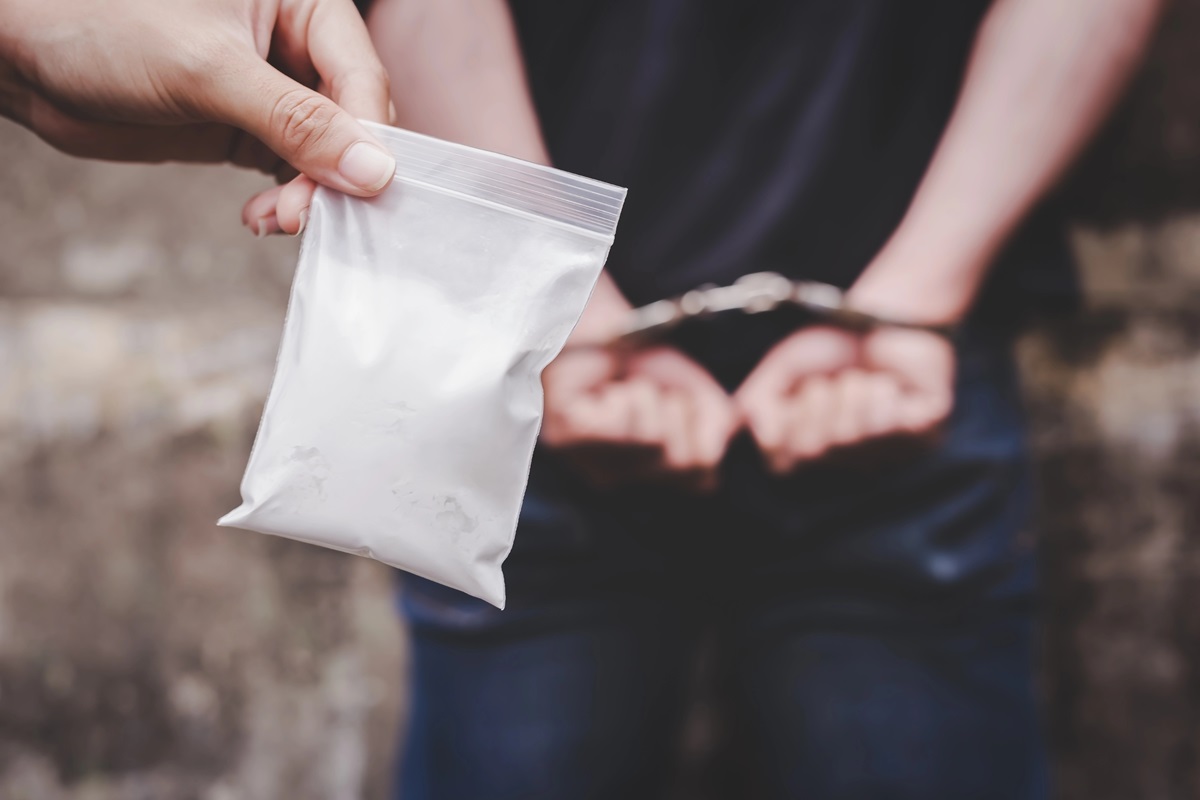Dealing with drug charges can be a daunting experience, but understanding your case can make a significant difference. Many individuals find themselves entangled in legal troubles without knowing the full scope of the law. Drug charge lawyers can offer clear guidance to protect your rights.
This article discusses drug possession and distribution in Texas. Here, you will understand and explore how different drug types and quantities affect your charges. By the end, you’ll better grasp what defenses a drug defense attorney may use in your situation.


Understanding Drug Charges In Texas
Drug charges in Texas range in severity, depending on the substance and quantity involved. The law categorizes drug-related offenses primarily as possession or distribution. Knowing the differences between these charges is crucial to understanding your case.
Possession
Drug possession in Texas refers to the unlawful control of illegal substances, either on a person or their property. There are two kinds of drug possession: actual and constructive. Actual possession occurs when an individual physically has the drugs on them, such as in their pocket or bag.
Constructive possession applies when a person may not physically hold the drugs but can control or access them, such as having medications stored in their car or home. Constructive possession means someone can be legally responsible for drugs even if they are not in their immediate possession.
Distribution
Drug distribution involves more than just having a drug in your possession. It refers to the selling, transferring, or trafficking of illegal substances. This charge often comes with harsher penalties. Distribution covers a wide range of activities, including providing drugs to others, even without profit.
The amount of drugs and the presence of paraphernalia can influence the classification of the charge. Scales, baggies, and other items typically associated with drug distribution can lead to more severe charges. In some cases, the presence of these items may lead to an assumption that you intended to distribute the drugs, even if that was not your intention.
Penalties for drug possession or distribution in Texas largely depend on the type and quantity of the controlled substance involved. The state categorizes drugs into different penalty groups, each corresponding to varying levels of punishment.
These penalty groups are designed to account for the risk level of each drug, with more dangerous substances resulting in more severe consequences. Understanding which category your case falls under is critical, as it can significantly impact your legal strategy and potential outcomes.
Penalty Groups Of Controlled Substances
In Texas, controlled substances are categorized into specific penalty groups, each based on the type of drug and its potential for abuse. These classifications are vital in determining the severity of charges and penalties for drug-related offenses, such as possession or distribution.
Penalty Group 1
This covers hazardous and addictive substances that are considered to have no accepted medical use. These drugs are associated with severe penalties due to their potential for abuse and harm. Common substances in this group include cocaine, heroin, methamphetamine, and oxycodone.
Penalty Group 1-A
This is a specific category focused on hallucinogenic drugs, particularly those involving lysergic acid diethylamide (LSD) and its derivatives. LSD is known for its strong hallucinogenic effects and is considered highly hazardous due to its unpredictable impact on the user’s perception.
Penalty Group 2
Penalty Group 2 includes substances that are primarily hallucinogens and other drugs with a high potential for abuse. Examples include methylenedioxy methamphetamine, PCP (Phencyclidine), and Psilocybin (found in psychedelic mushrooms).
Penalty Group 2-A
This group explicitly addresses synthetic cannabinoids, which are chemically engineered to mimic the effects of marijuana. Substances in this group, such as K2 and Spice, are considered particularly dangerous due to their unpredictable and sometimes harmful effects on users.
Penalty Group 3
Penalty Group 3 includes prescription medications that have legitimate medical uses but also a potential for abuse when misused. Common substances in this group include Clonazepam, Glutethimide, and Ethyl loflazepate.
Penalty Group 4
This group contains drugs that have medical use but are considered less harmful than those in other penalty groups. These substances typically include compounds with small amounts of narcotics, such as Codeine, in particular cough syrups and other opioid derivatives.
Understanding the penalty groups is crucial for assessing the severity of drug-related charges in Texas, as each group determines the potential consequences based on the substance involved. However, the distinction between possession and distribution also significantly affects how these charges are classified and prosecuted.
Differences Between Drug Possession & Distribution
Drug-related charges can vary greatly depending on whether the offense involves possession or distribution. While both charges carry serious consequences, understanding the critical differences between them is essential to grasp the severity of the legal outcomes.
Severity Of Charges
The severity of possession charges in Texas varies based on the amount and type of substance involved. For example, small amounts of less harmful drugs, such as marijuana, may incur misdemeanor charges, while larger quantities or more dangerous substances can lead to felony charges.
In contrast, drug distribution is regarded as a more serious crime than possession. Even possessing small amounts of drugs with the motive to distribute can lead to felony charges. The legal implications become even more severe when larger quantities are involved, potentially escalating the charge to drug trafficking.
Legal Consequences
The legal consequences for drug possession can vary widely, typically including options such as probation, fines, drug treatment programs, or incarceration. Possession charges often provide opportunities for alternative sentencing, especially for first-time offenders.
These alternatives may involve enrollment in drug courts or diversion programs designed to address substance abuse issues rather than impose harsh penalties. Such options aim to rehabilitate rather than punish, allowing individuals to avoid a criminal record while receiving the help they need.
In contrast, drug distribution charges result in significantly harsher legal consequences. These can include longer prison sentences and harsher fines, reflecting the seriousness of the offense. Convictions for distribution often carry mandatory minimum sentences, particularly in large-scale operations involving trafficking.
Additionally, a conviction for distribution can have long-term repercussions. This can permanently impact your criminal record and affect future employment opportunities, housing options, and eligibility for various benefits.
Given the potential severity of charges and their legal consequences, individuals facing these allegations must consider their defense options carefully with the assistance of a drug crime lawyer. Various common defenses can be employed to challenge the validity of the charges, potentially mitigating the impact on one’s life and future.
Common Defenses Against The Offense
Common defenses to drug charges focus on challenging the evidence against you. A skilled lawyer for drug charges can identify various factors that may weaken the prosecution’s case. Each defense strategy hinges on the specific details of your case, making it essential to have experienced legal guidance throughout the process.
Proving Unlawful Search & Seizure
Unlawful search and seizure is a powerful defense in drug cases. If law officers violated your rights during the search, evidence may be inadmissible. Officers must follow strict protocols when conducting searches. If they fail to do so, the evidence they find cannot be used against you.
Medical Prescription
Having a valid prescription for a drug can serve as a strong defense. Texas law allows individuals to possess certain controlled substances if prescribed. The defense argues that the drug found was legally prescribed for medical use.
Lack Of Knowledge Defense
The lack of knowledge defense asserts that you did not know the drugs were in your possession. For example, if someone else placed the drugs in your vehicle without your knowledge, this could be a valid defense. This requires proving that you had no control over or awareness of the illegal substances.
Proving Personal Use Over Distribution
Proving the drugs were for personal use can result in reduced charges. This defense focuses on showing that the amount of drugs found does not indicate an intent to distribute. A skilled criminal defense lawyer can effectively present personal use defenses, which are common in cases where the amount of drugs is relatively small.
Entrapment Defense
Entrapment occurs when law officers induces a person to do unlawful acts they would not have otherwise committed. This defense argues that you were unfairly persuaded to engage in drug-related activity. Entrapment can be challenging to prove but is effective if law enforcement overstepped legal boundaries.
Each defense hinges on specific case details and can significantly affect the result of your situation. However, handling the complexities of the legal system can be daunting. This is where the skills of a reputable law firm comes into play. Here, you can find a dependable defense attorney for drug charges who can be your ally throughout the legal process.
The Medlin Law Firm Will Defend You


The Medlin Law Firm has extensive experience defending clients against drug possession and distribution charges. Our firm understands the complexities of these cases and can guide you through every step of the legal process. Whether you’re facing possession or distribution charges, we aim to safeguard your rights and fight for a favorable outcome.
Our team knows how to challenge the evidence brought against you in drug possession and distribution cases. We examine the legality of searches, the handling of evidence, and any procedural errors. By identifying weaknesses in the prosecution’s case, our firm works to reduce or dismiss the charges you face.
We also focus on the potential defenses that can make a significant difference in your case. Whether it’s proving personal use over intent to distribute, or showing that the search was unlawful, we explore every possible avenue.
We understand how overwhelming drug charges can feel. Our experienced attorneys will stand by you throughout the entire legal process, from arrest to trial. We communicate openly with our clients and ensure that you fully understand your options at every stage. We are here to support you and work tirelessly to protect your rights.
Summary
Understanding the charges is the first step in building a defense whether its possession or distribution, can have serious consequences. By learning about the different types of charges, their legal consequences, and possible defenses, you are better equipped to navigate your case.
The Medlin Law Firm is prepared to defend you against drug charges, offering comprehensive legal support. Our experienced attorneys will work diligently to challenge the evidence against you and protect your rights.
Similar Posts by The Author:
Publicaciones Similares del Autor:
(682) 204-4066 We cannot receive pictures via text so please send those via email or hand deliver to our office.





